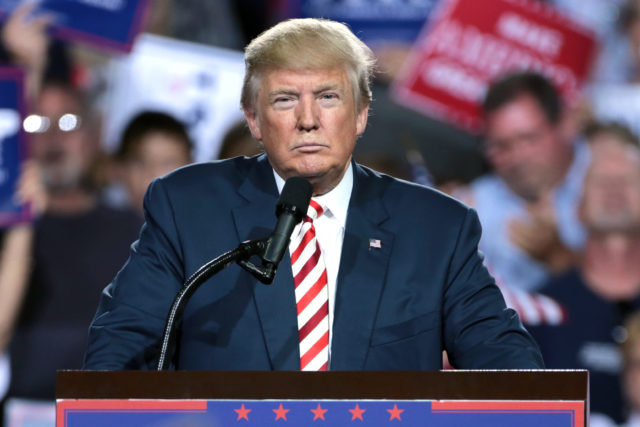
There is widespread concern that President Trump won’t leave office if he loses the election. This angst is understandable. Trump has, after all, refused to commit to a peaceful transfer of power.
But if Trump loses he will leave. Not, of course, because he wouldn’t want to seize power and stay in office. But because he couldn’t get away with it if he tried.
A fight about the election would ultimately go to the Supreme Court — just like it did in 2000. Trump won’t stay in the White House if the Supreme Court rules against him. Why? Because staying would require Trump’s entire administration, the military and nearly three dozen senators (to withstand impeachment and removal) all conspiring to violate two sacred principles of our constitutional system: that courts are the final word in constitutional disputes and there are peaceful transitions of power after elections.
It won’t happen.
There is broad recognition among liberals and conservatives alike that court orders must be followed. Always. Indeed, despite Trump’s many losses in court — and despite his incendiary rhetoric targeting the judiciary — he has not disobeyed a court order.
This principle began in 1803 with Marbury v. Madison, when Chief Justice John Marshall declared that it “is emphatically the duty of the Judicial Department to say what the law is.” Ever since, federal courts have issued orders resolving disputes — and the rest of the government has obeyed and enforced them.
This was true when President Eisenhower sent federal troops into Arkansas to enforce Brown v. Board of Education. It was true when the Supreme Court ordered President Nixon to hand over his oval office tapes. It was true when the Supreme Court decided the 2000 presidential election.
And it’s true now.
Trump’s Attorney General Bill Barr recently embraced this principle. Barr was asked: “Should the Supreme Court have the exclusive power to interpret the Constitution?” His response: “Yes.” If Trump “believes that he has the power to do something under the Constitution,” Barr continued, “he should be able to exercise that power. And if the Court disagrees and orders him not to, then he’s lost the case.”
And last week a unanimous Senate passed a resolution reaffirming its commitment to a peaceful transfer of executive power.
True, Donald Trump has probably never heard of Marbury v. Madison. His allies are prone to making false statements. And he would happily disregard the Supreme Court to stay in office.
But it’s not up to him. It’s up to the many executive branch, military and congressional leaders who must legitimize his presidency and carry out his orders. As we learned from the Mueller report, Trump couldn’t get his own White House counsel to fire Bob Mueller; he’s not going to get his entire administration to seize the government.
Indeed, seizing power would be exponentially worse than anything Trump has attempted. It would be akin to signing and spending the annual budget without Congress’s approval; refusing to recognize or participate in an impeachment process; or issuing an executive order firing a life-tenured Supreme Court Justice.
We should expect a partisan battle over the election. We should expect Trump to fight hard in the courts. We should expect tense moments. Surprises. Disappointments. Shocks. But, ultimately, Trump will not defy a court order and prevent the peaceful transfer of power.
Not because he wouldn’t want to. But because he can’t.
William Cooper is an attorney who has written for The Wall Street Journal, Baltimore Sun, New York Daily News and USA Today, among others.
This opinion column does not necessarily reflect the views of Boulder Weekly.














